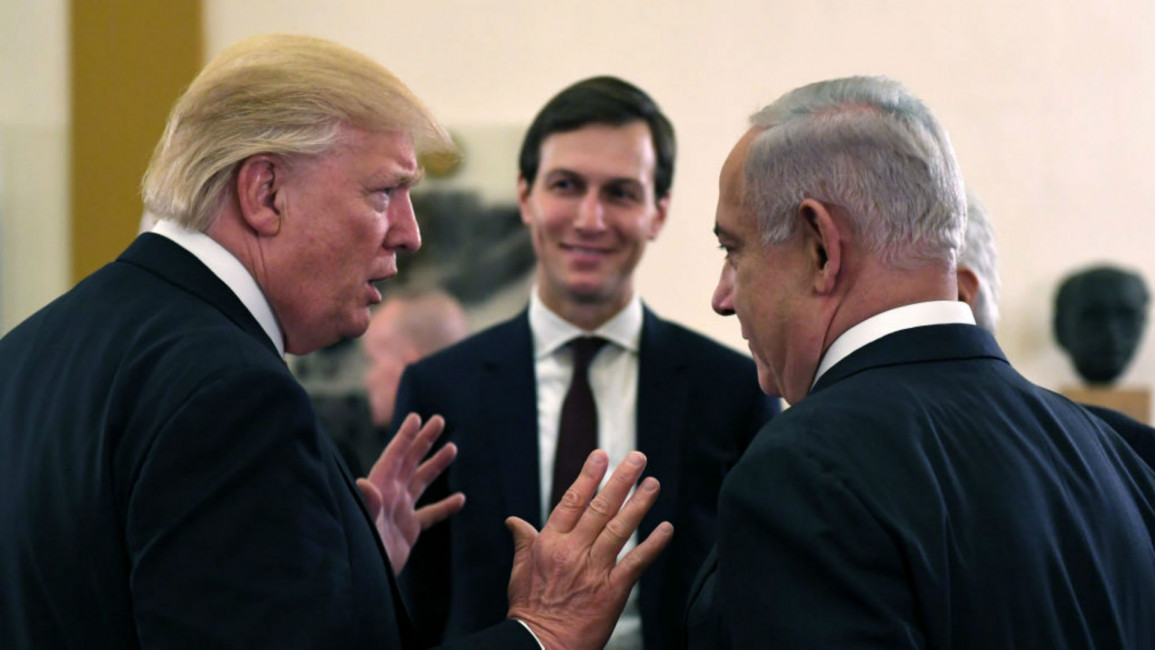Palestinians slam 'amateur' Kushner at UN Jerusalem meeting
The meeting at the UN's European headquarters lacked the fanfare - and multi-billion dollar economic plans - that accompanied the Bahrain talks spearheaded this week by President Donald Trump's son-in-law.
The Geneva meeting, called the International Conference on the Question of Jerusalem, was convened by the UN's Committee on the Exercise of the Inalienable Rights of the Palestinian People.
Officially, the conference is aimed at preserving Jerusalem's multi-faith heritage, but with few top-level officials on hand its outcomes are unlikely to influence the Middle East peace process.
Nevertheless, Palestinian leaders sought to portray the meeting as a counterpoint to the "Peace to Prosperity" conference in Bahrain, boycotted by the Palestinians who accused the unabashedly pro-Israel Trump of dangling the prospect of cash to try to impose political solutions.
Blasting "the amateurs of political activities like Kushner", the Palestinian Authority's social affairs minister Ahmad Majdalani called the Bahrain talks a "resounding failure" in his opening remarks.
He charged that Kushner's plan merely aimed to "improve our lives under occupation".
"We want an end to occupation."
The Palestinian permanent observer to the UN, Riyad Mansour, told reporters that his problem with the Bahrain meeting was not "a personal issue" with Kushner.
Rather, he stressed, Kushner's initiative lacks credibility because "you cannot begin the process of resolving this complicated issue through the economic door".
"It has to be done through the political door."
Kushner, a 38-year-old real estate investor, said he has focused on jump-starting the Palestinian economy because the Middle East peace process needed a fresh approach after the years of deadlock on the political front.
The two-day Geneva conference on Jerusalem includes speeches from Arab and Israeli academics as well as religious leaders.
Kushner, a White House adviser, unveiled a plan at the workshop that calls for $50 billion in investment over 10 years and the creation of 1 million Palestinian jobs in what he billed as the "Opportunity of the Century".
However, the plan does not address the core issues of the conflict between Israel and Palestine: the contested holy city of Jerusalem, sought by both peoples as a capital; the fate of more than 5 million Palestinian refugees and their descendants, and the borders of a future Palestinian state.
General Secretary of the Palestinian National Initiative Mustafa Barghouti said that he believes it is not a deal designed "for peace" and instead would "legitimatise the illegal annexation" of Jerusalem, the West Bank and of Golan heights.
"We cannot have economic development without being free," he added.
The 10-year plan calls for projects worth $6.3 billion for Palestinians in Lebanon, as well as $27.5 billion in the West Bank and Gaza, $9.1 billion in Egypt and $7.4 billion in Jordan.
The Palestinian Authority and Hamas, which governs the besieged Gaza Strip, have rejected the conference, saying that the US and Israel are trying to dangle money to impose a political settlement which will deny Palestinians their right to self-determination.
Thousands of Palestinians have also rallied across the country to protest the White House-led Middle East peace conference in Bahrain.
Follow us on Twitter: @The_NewArab

![Trump's warm greeting to Netanyahu contrasted with Kamala Harris's critical reception [Getty]](/sites/default/files/styles/image_212x120/public/2024-07/GettyImages-2162908988.jpg?h=69f2b9d0&itok=uRh_9WXh)
![The brutal assault on Khan Younis has killed dozens and displaced thousands more [Getty]](/sites/default/files/styles/image_330x185/public/2024-07/GettyImages-2162526709.jpg?h=d3eda8cf&itok=n5N-o8p5)
![Members of the Algerian delegation threw roses into the Seine [Getty]](/sites/default/files/styles/image_330x185/public/2024-07/GettyImages-2162980872.jpg?h=199d8c1f&itok=h_3o_TOL)